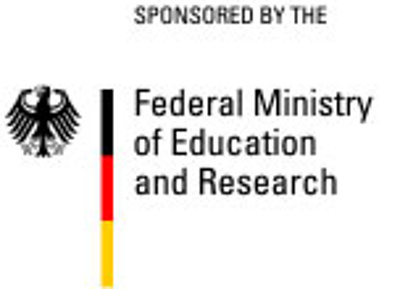
Kontakt
Presse, Kommunikation und Marketing
Tel.: +49 228 833-144
Fax: +49 228 833-441
presse[at]avh.de
Eight top international researchers from the humanities and social sciences to receive €250,000 each to fund collaboration with colleagues in Bamberg, Berlin, Dresden, Duisburg/Essen, Giessen, Göttingen, Halle (Saale) and Hamburg.
Emotion research, intercultural communication and multilingualism or issues from the gender research field: humanities scholars and social scientists deal with subjects that are on people's minds and are of fundamental importance to society. In order to foster international collaboration in these important disciplines, the Alexander von Humboldt Foundation awards the Anneliese Maier Research Award, which is financed by the Federal Ministry of Education and Research.
The Parliamentary State Secretary in the Federal Ministry of Education and Research, Thomas Rachel, and Enno Aufderheide, Secretary General of the Humboldt Foundation, will present the awards during a special ceremony held in Berlin at 7:15 p.m. on 12 September.
This year, eight outstanding researchers will receive the Anneliese Maier Research Award along with €250,000 for each recipient to fund their collaborative research activities with a German host for up to five years. The winners will work together with colleagues at universities in Bamberg, Berlin, Dresden, Duisburg/Essen, Giessen, Göttingen, Halle (Saale) and Hamburg.
The award ceremony will take place as part of a symposium being held on 11 and 12 September. Some 100 German and international humanities scholars and social scientists will also be in attendance, alongside this year’s award winners and their collaborative partners in Germany.
Note to journalists:
Journalists are cordially invited to attend.
We will be happy to arrange interviews. It is permitted to film, photograph and make audio recordings during the entire event.
Please send your accreditation, including a copy of your valid press ID, by e-mail to presse@avh.de by 12:00 noon on Tuesday, 11 September 2018.
Award ceremony:
Date: Wednesday, 12 September 2018, 7:15 p.m.
Venue: Auditorium Friedrichstrasse – Quartier 110, Friedrichstrasse 180, 10117 Berlin
The full programme is available here.
Contact at the venue:
Teresa Havlicek, Tel.: 0151-110 15 699
Lena Schnabel, Tel.: 0160-972 87 564
The award winners at a glance:
- Douglas Cairns from the United Kingdom is one of the world's leading experts in emotion research. He focuses on the language used to express emotions in classical texts. Cairns is set to reinforce historical emotion research in Germany at TU Dresden.
- José Maurício Domingues from Brazil is a sociologist and one of the most important contemporary theoreticians in his field. He investigates the global modern age from the perspective of comparative civilisations, connecting the theoretical debates being conducted in the English, French and German-speaking worlds. The aim of his collaboration with the Hamburg Institute for Social Research and the Institute for Latin American Studies at FU Berlin is to analyse modern politics from a historical and comparative angle.
- Pascal Mamassian from France is one of the world's top experts on visual perception. He conducts research on, for example, the importance of light direction and shadow casting for spatial perception. He is currently focussing on cross-modal and three-dimensional perception. Mamassian will build up and internationalise experimental research in his discipline at Giessen University.
- Alan Mikhail from the USA is recognised as a pioneer in Middle Eastern History. He combines research on the history of the Middle East with environmental history, opening up completely new research fields in the process. While at the University of Bamberg, Mikhail will drive research on environmental and Ottoman history in Germany as well as increase the international visibility of research there.
- Ingrid Piller from Australia is a specialist in intercultural communication and multilingualism. Piller focuses on the social consequences of linguistic diversity. Her work examines, for example, the opportunities multilingualism offers for social participation. At the University of Hamburg, she will use her international expertise to broaden and expand research on multilingualism, language acquisition and linguistic education.
- Annelise Riles from the USA conducts research along the boundary between law and ethnology. She examines the relationships between private international law, the regulation of financial markets and central banking, and shows how they relate to cultural diversity, human and women’s rights. Working together with the Max Planck Institute for Social Anthropology, Halle (Saale), Riles will build up the field of legal anthropology which is still in its infancy in Germany.
- Sylvia Walby from the United Kingdom is a leading international expert on issues of social inequality in contemporary societies, particularly with respect to gender. In her research, she studies, among other things, the impact of the financial crisis and globalisation, and subjects such as violence and human trafficking. Her influence reaches well beyond Gender Studies into the social sciences and the area of social studies. Walby will help internationalise the Gender Studies research in the social sciences at the University of Duisburg-Essen.
- Wang Hui from China is not only one of the most influential intellectuals in China, he also ranks as one of the most important experts on Chinese intellectual history. He does not consider Chinese history in isolation, but in its broader Asian and global context. While at the University of Göttingen, Wang will add a Chinese perspective to Sinology research on topics such as globalisation and the rise of China.
The award is named after the German philosopher and science historian Anneliese Maier (b. 1905 in Tübingen, d. 1971 in Rome).
The Alexander von Humboldt Foundation
Every year, the Alexander von Humboldt Foundation enables more than 2,000 researchers from all over the world to spend time researching in Germany. The Foundation maintains a network of well over 29,000 Humboldtians from all disciplines in more than 140 countries worldwide – including 55 Nobel Prize winners.

